Branson's Virgin rocket takes satellites to orbit
- Published
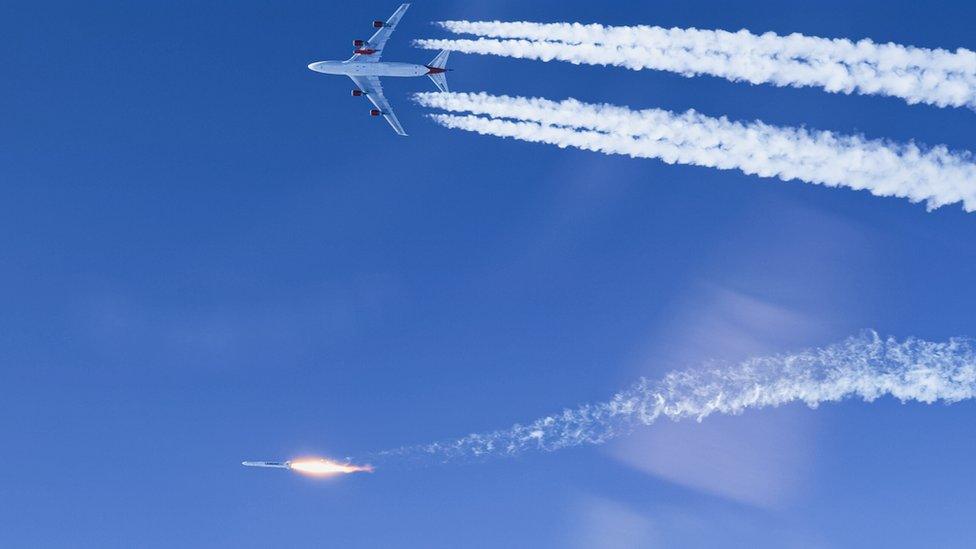
Within seconds of being dropped, LauncherOne had ignited its engine
Sir Richard Branson's rocket company Virgin Orbit has succeeded in putting its first satellites in space.
Ten payloads in total were lofted on the same rocket, which was launched from under the wing of one of the entrepreneur's old 747 jumbos.
Sir Richard is hoping to tap into what is a growing market for small, lower-cost satellites.
By using a jet plane as the launch platform, he can theoretically send up spacecraft from anywhere in the world.
In reality, of course, his Virgin Orbit system has to be licensed in the locality where it is used, which at the moment is solely California. But there are well-advanced plans to bring the 747 and its rockets to Cornwall in south-west England, for example.
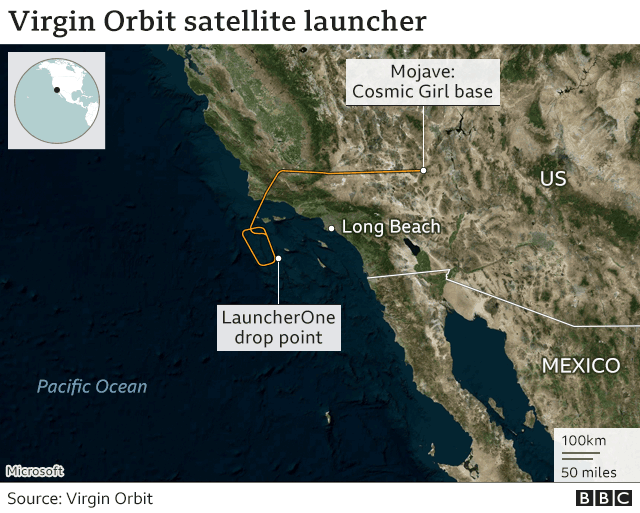
Sunday's success was a big fillip for Sir Richard's team who had tried and failed to launch a rocket in May last year. That effort was thwarted by a breached propellant line feeding liquid oxygen to the booster's first-stage Newton-3 engine.
No such problems occurred this time.
The modified 747, named Cosmic Girl, left its base in California's Mojave desert at 10:50 PST (18:50 UTC) to fly out over the Pacific Ocean.
A little under 60 minutes later, and cruising at 35,000ft (10,500m), the jet banked hard to the right, dropping as it did so the 21m-long rocket that had been clamped to its underside.
Within seconds this booster, called LauncherOne, had ignited its engine and was climbing to space.
Correct deployment of the various spacecraft onboard at an altitude of roughly 500km was confirmed a couple of hours later.
"A new gateway to space has just sprung open," said Virgin Orbit CEO Dan Hart. "That LauncherOne was able to successfully reach orbit today is a testament to this team's talent, precision, drive, and ingenuity."
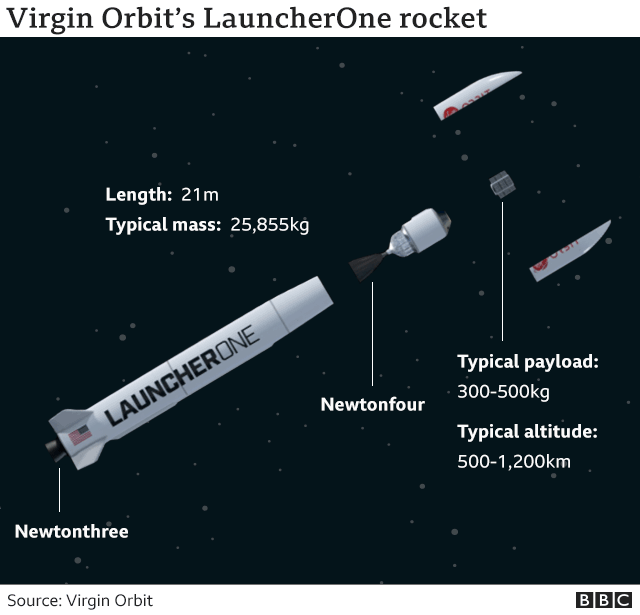
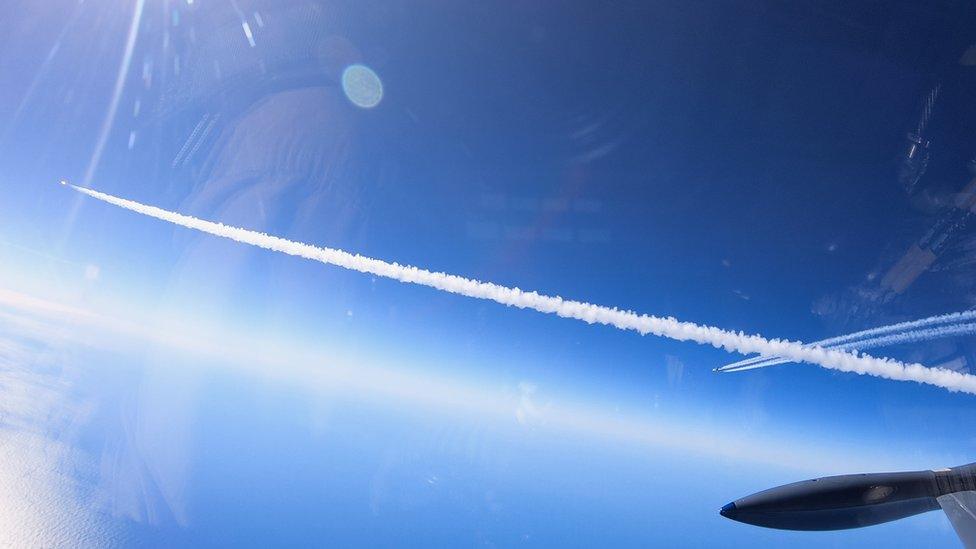
LauncherOne's ascent photographed from a chase plane
Sir Richard has been trying to find the right solution to get into the satellite launch business since 2009, external. His concrete proposal was first put before the public at the Farnborough International Air Show three years later.
There is an emerging market for small, lower-cost spacecraft, whose developers are seeking more flexible and affordable ways of getting their assets above the Earth.
Virgin Orbit is one of a number of companies now racing to meet this demand. Other contenders include the Rocket Lab outfit, which sends up its vehicles from a ground launch pad in New Zealand. But there are tens of other small rocket start-ups at various stages of maturation, and some of these plan to operate from the UK as well.
"Virgin Orbit has achieved something many thought impossible. It was so inspiring to see our specially adapted Virgin Atlantic 747, Cosmic Girl, send the LauncherOne rocket soaring into orbit," Sir Richard said.
"This magnificent flight is the culmination of many years of hard work and will also unleash a whole new generation of innovators on the path to orbit. I can't wait to see the incredible missions Dan and the team will launch to change the world for good."
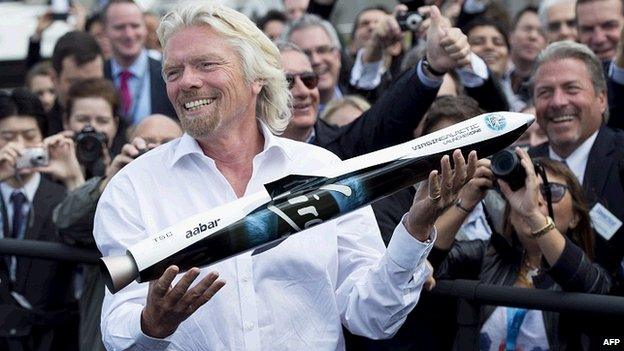
Sir Richard presented the LauncherOne concept at Farnborough in 2012
Will Whitehorn is the president of UKSpace, the trade body representing the space industry in Britain. He's also a former president of Virgin Galactic, Sir Richard's other space company which hopes soon to start flying fare-paying passengers above the atmosphere in a rocket plane.
He said Virgin Orbit's success on Sunday was hugely significant.
"This is a momentous day for the small satellite world, as we will be able to launch satellites responsively; and for the UK this event promises sovereign launch capability very soon," he told BBC News.
"I plan to push hard for a launch from Cornwall to coincide with the G7 meeting this year if at all possible!"
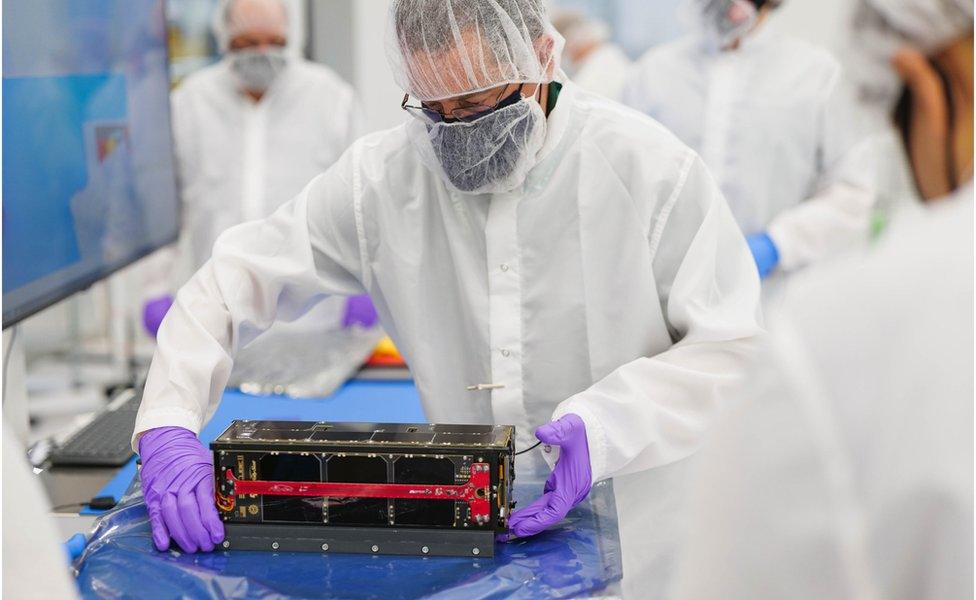
Sunday's payloads were mostly shoebox-sized and developed by universities
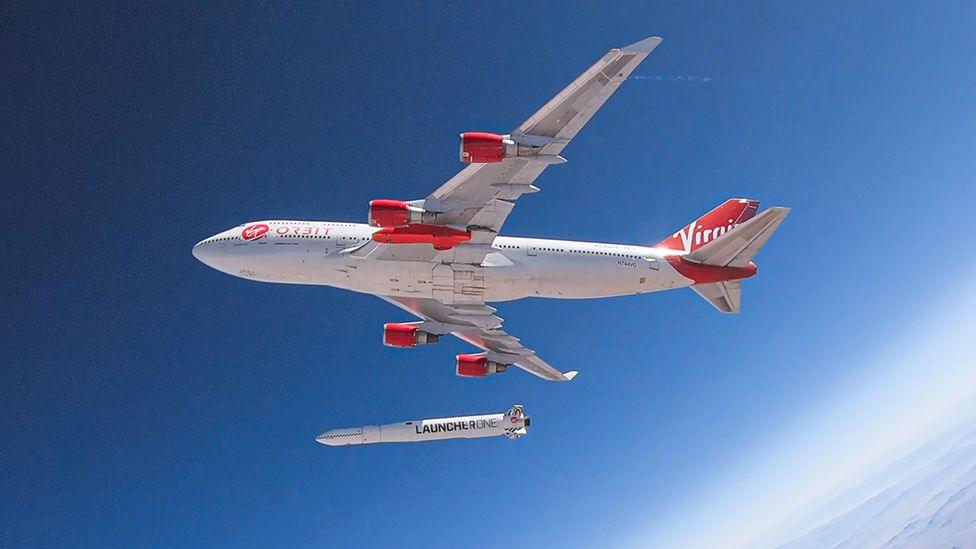
The air-launched system has the flexibility to operate anywhere - in theory
